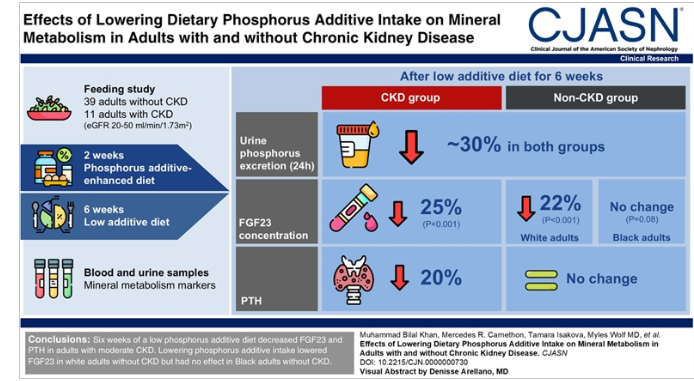Published in the Clinical Journal of the American Society of Nephrology (CJASN), this controlled feeding study examined how cutting phosphorus additives in the diet affects mineral metabolism in 50 adults with and without CKD .
After two weeks on a phosphorus additive–enhanced diet, participants transitioned to a low-additive diet for six weeks.
In both groups, 24-hour urine phosphorus excretion dropped by ~30%. In the CKD group, fibroblast growth factor 23 (FGF23) levels declined by 25% and parathyroid hormone (PTH) by 20%.
Among healthy individuals, FGF23 decreased significantly only in White participants, not in Black participants, indicating a race-based difference in response.
Why is this important?
Excess dietary phosphorus from additives may worsen mineral imbalances that contribute to CKD progression and cardiovascular risk. This study shows that reducing phosphorus additives can improve key metabolic markers, especially in those with CKD, highlighting a practical, diet-based strategy for managing kidney health.


Einen Kommentar hinterlassen: